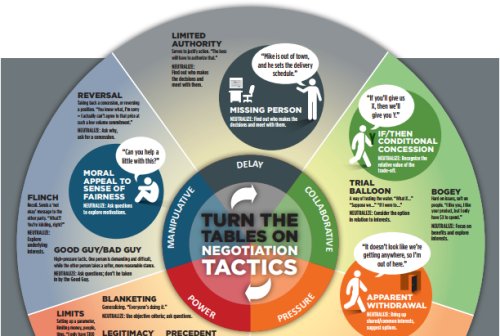So sang rock musician Elvis Costello. And nothing creates fear like the prospect of a negotiation. People are fearful about negotiation for many reasons. They fear negotiation because of a lack of control, they fear losing, or maybe they fear that they will be outwitted and embarrassed by an aggressive party.
Fear is a distressing reaction caused by impending danger, evil, or pain which is manifested by dread to meet or experience the danger. Fear in negotiation is real. It manifests itself with psychological symptoms that include not thinking straight. Your mind races from one bad potential outcome to the next, rather than staying in the moment and listening. Thoughts can include running away, which seems a prudent decision given your anxiety.
There are also physiological symptoms of fear. Your blood pressure rises. You breathe irregularly and shallowly. You perspire. You get cotton mouth. Your body tenses and your back aches. Your eyes squint while you look about nervously like a rabbit preparing to "hightail it" out of town.
You can combat fear in negotiation in a number of ways:
- You can avoid it, but this only works temporarily since life will require you to negotiate again and again.
- Greet it by acknowledging that a little fear is a normal thing; this is a healthy response.
- Preparation can make you confident and minimize the fear; good negotiators are always prepared.
- Take on the behavior of a confident negotiator and act as if you are not fearful; this can include breathing deeply, making good eye contact, and careful listening.
- Avoid rushing to an agreement. Fear can trip you up when you don't take the time to look at all options.
- Take fear "head-on" by seeking it and conquering it through repetition. This is called systematic desensitization. Cold callers beat fear by pushing themselves to make cold call after cold call. The more you confront the fear the more confident you become.
A best practice is to negotiate like you are having coffee at Starbucks with a friend. Speak clearly and honestly. Be good listener and be empathetic. Try to understand the other party's needs. Dig deeper and try to understand the other party's motivations and fears.
Take a chance and share how you feel. Tell the other party what is important you and why. Be specific. Your candor may stun them and cause them to open up and do the same. If that happens you are on the way to a better deal.
Let the fear go.
John Bradley Jackson
